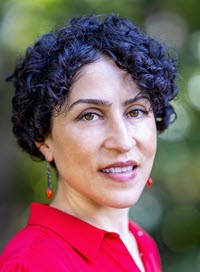Abstract
Excerpted From: Azadeh Shahshahani, People's Tribunals: Holding Power to Account, 116 American Society of International Law Proceedings 202 (April 6-9, 2022) (39 Footnotes) (Full Document)
 People's tribunals are forums of justice set up by social justice movements and organizations to adjudicate cases often against states and state-backed corporations. Rather than courts and other judicial apparatus set up by states, organizers instead convene jurors from around the world to adjudicate. The judgments rendered through people's tribunals are non-binding, as their decisions are not backed by forces of the state. However, these tribunals render significant power: “People's tribunals have had success in directing international attention to grave abuses of human rights in various countries ... [they] advance human rights and hold governments to account.”
People's tribunals are forums of justice set up by social justice movements and organizations to adjudicate cases often against states and state-backed corporations. Rather than courts and other judicial apparatus set up by states, organizers instead convene jurors from around the world to adjudicate. The judgments rendered through people's tribunals are non-binding, as their decisions are not backed by forces of the state. However, these tribunals render significant power: “People's tribunals have had success in directing international attention to grave abuses of human rights in various countries ... [they] advance human rights and hold governments to account.”
People's tribunals are modeled on tribunals used in the international setting in the past, most specifically the Russell Tribunal. The Russell Tribunal (also known as the International War Crimes Tribunal) was set up by British philosopher Bertrand Russell and French philosopher Jean-Paul Sartre to investigate U.S. government intervention and war crimes in Vietnam in the late 1960s. Similar international tribunals conducted since which have been modeled on the Russell Tribunal include the 1973 Russell Tribunal on Latin America (which looked into human rights violations in Brazil and Argentina by U.S.-backed dictators), the 1974-76 tribunal which investigated the U.S.-backed coup in Chile, a 2004 tribunal in Iraq, and the Russell Tribunal on Palestine.
The experience of the Russell Tribunal inspired the creation of “Russell II,” which later morphed into the Permanent People's Tribunal (PPT) headquartered in Rome, Italy. Started by renowned Italian jurist Lelio Basso, the PPT developed its framework of analysis with a people-centric focus through a “Declaration of the Rights and Liberation of Peoples.” This stands in stark contrast to the state-centric focus of institutions such as the United Nations.
Organizers of people's tribunals hope to engage and educate communities, raising public awareness about the legal and human impact of various governments' decisions and actions. People's tribunals address human rights violations and focus on providing a forum to people whose voices have been silenced. Such tribunals are critical to keeping the lived human experience at the forefront of any conversation on violations of human rights, particularly when state actors try to dispute the seriousness of the allegations. People's tribunals “aim to empower victims through providing ownership over ‘the story,”’ allowing their voices to be heard against those in power.
People's tribunals bring attention to the inconvenient truths that international or domestic judicial tribunals either cannot engage with or choose not to. Furthermore, while people's tribunals themselves hold no legal authority, they help shine a light on situations and gather evidence that could later be used in an International Criminal Court (ICC) trial. The ICC has the authority to try and convict those found to be guilty of “the gravest crimes of concern to the international community: genocide, war crimes, crimes against humanity and the crime of aggression.” The ICC may take on cases and launch investigations due in part to the support of evidence from people's tribunals, highlighting the power and importance of people's tribunals toward the goal of justice.
For the most part, the procedure of these tribunals is fairly similar: there is a hearing conducted in a formal setting, where the case is argued. The actors include jurors, witnesses, the prosecution, and the defense. Social movements and groups organizing people's tribunals often invite legal scholars, faith and community leaders, and judges to sit on the panel of jurors. The prosecution is typically composed of lawyers committed to the cause promoted by social justice groups. Witnesses are the most influential and authentic aspect of these tribunals--they are the people who have been affected by the abuses. In this way, the tribunals offer a platform for individuals to testify about how they have been harmed and affected. This brings in an incredibly profound human element to issues that may seem distant or more difficult to understand. It is these witnesses who make these people's tribunals significant and effective. In most settings, witnesses will be heard, there will be oral arguments by both the prosecution and defense. Then, the jury will have an allotted amount of time to deliver their verdict.
[. . .]
People's Tribunals offer a powerful option to shed light on otherwise muted human rights violations, those which are perpetrated by states and state-backed corporations. While they do not offer the power of judicial tribunals and their ability to enforce judgements, they are significant in the way they make people more aware of ongoing violations of rights and provide a forum to survivors of human rights violations.
If we want to enact change, particularly regarding human rights violations and crimes against humanity, the voices of those most affected must be heard. These voices, so often drowned out by the louder, megaphoned voices of those in power, are the ones that will inspire action. People's tribunals also provide and create a record of offenses that could potentially be a starting point when domestic and international judicial, such as the International Criminal Court, are finally forced to act. By shining a light on systematic human rights violations, the public will not only become more aware, but invested in doing their part to prevent such violations in the future and hold power to account.


